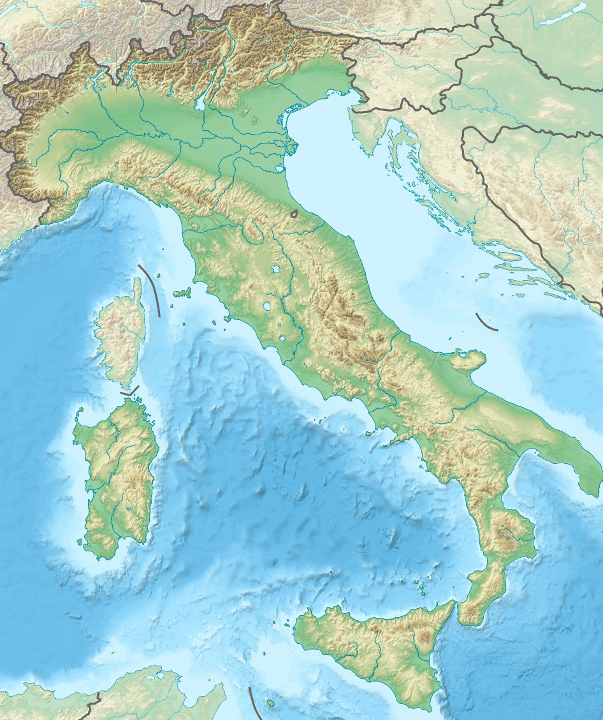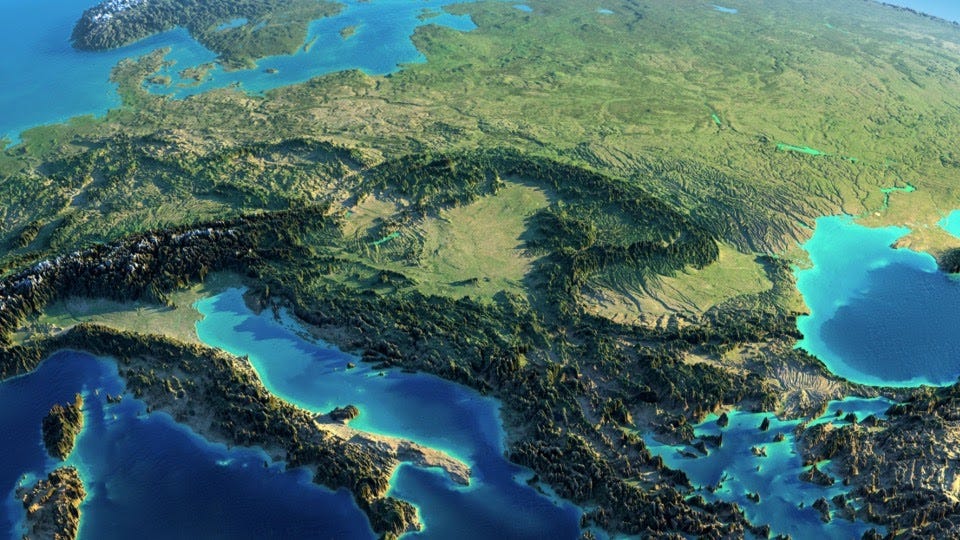By the time you finish reading this article, you will see from a different light news like the ransomware attack on Colonial, the growth of Bitcoin, the rules of the creator economy, the global negotiations on tax rates, or even this.
I hope you enjoy reading it as much as I enjoyed writing it!
“Study the past if you would define the future.” – Confucius
We think we’re taught History. But we’re really taught Propaganda.
When you read this series of articles, you will realize that most of what you learned in History class in school was irrelevant, designed to take advantage of you, and that it prevented you from understanding how the world really works. And if you can’t understand how the world works, you can’t prepare for the future.
For every truth you hold about the past, somebody else has the opposite take. Wars, battles, invasions, conquerors, empires, nations, flags, heroes… All are stories we’re told to support the superiority of our countries.
And how are they taught? As a hodgepodge of facts and dates we recorded in our brains like zombies, only to delete them immediately after. Because we didn’t understand why. Why did History unravel this way? And why does it matter?
What if I told you that History is not random? That it follows clear rules?
What if whoever conquered the US landmass was condemned to become an empire? What if China was always meant to be another empire? What if Europe had all the best geographic assets to make it the breakout continent? What if Northern Europe was always going to be richer than the South, no matter the protestant and catholic ethics? What if Africa’s geography holds it behind?
What if the land determined which tribes developed the technology to grow into cities? Which ones would become kingdoms and empires?
And what if I told you we’re leaving all this geographic influence behind?
Mankind is turning a page.
We’re starting a new chapter.
History is moving to the Cloud.
Because History is about to change. Everything that determines the success or failure of a country has turned upside down.
We don’t realize it, but all the most important decisions we make in our lives are rooted in an understanding of reality that is quickly shifting under our feet. Realizing this will help you make some of the most important decisions in your life: Where you live, what you work on, where you invest.
This is what you’ll learn in this series:
In the past, Geography ruled History.
Over time, Geography and Technology evolved together to determine History.
Now, Technology has taken over. Geography matters less and less.
This means Technology is the main determinant of History now.
This changes everything we understand about the world.
Today is Part I.
Part I: Geography Is the Chessboard of History
Look at this map of Italy intently. I’m going to ask you a question about it.

Alright, here’s the question: Where did the main Italian cities and kingdoms appear?
Think about it. Don’t give up yet.
What places do you think are better to establish a city? You probably want a plain crossed by a river, to have lots of fertile land that can feed a big population, and an easy way to travel.
Conversely, you want to avoid mountains. A 2% slope makes cultivation impractical, and above 6% it’s impossible. Why?
It’s harder to work that terrain
It’s less fertile, because of erosion
It’s harder to build irrigation systems
Or any other building, for that matter
Transport is harder and takes longer
Which means, historically, communication was also harder and took longer
Places that are less fertile feed fewer people, so they get less population density, less specialization, and less wealth overall.
With longer times to communicate and transport goods, commerce is much more expensive, and hence there’s less of it. Perishable goods are especially less valuable. Hence, again, less wealth.
This graph shows how the more rugged a terrain, the lower GDP per person. Notice it’s a logarithmic graph. And it only speaks to GDP per person, not the total number of people, which is an additional way of generating wealth.
The difficulty of building over mountains or hills is still true today. I took this picture while flying over the San Francisco Bay Area the other day:
Even today, it’s so much more expensive to build housing and infrastructure on mountains that we avoid it.
So, do you have a good guess now about where in Italy were the main cities? Ok, here’s the answer:
Rome is in the Tiber Valley and Naples in the Volturno Valley. Florence is in the Arno Valley, the heart of Tuscany, which includes other cities like Siena or Pisa. Most of the other big Italian cities are in the Po Valley: Turin, Milan, Venice, Bologna, Parma, Padua, Verona…
Just looking at the geography, you can tell where there is going to be population and wealth. One way to visualize this is with nightlights: the more night light, the wealthier the area. So what does Italy look like comparing its geography with is wealth?

The Po Valley stands out, but it’s not the only place that does. Every single green valley area has more population and wealth. Even small green nooks and crannies have crazy “nightlife”. The bigger a green area, the wealthier it is.
Remember this next time you hear somebody say Northern Italians work harder than Southern Italians.
Ok, now let’s apply our newly-acquired skills elsewhere. Look at this map intently again.
Now tell me. Where was the Austro-Hungarian empire? One tip: It’s been an area more or less united for nearly 1,000 years.
Okay, go back and make a guess before moving on. If you don’t make one, you won’t learn to read maps and be able to tell History based on Geography.
Ready? Ok.
If you guessed that walled garden in the middle, you were right. Here are the successive countries and empires that ruled it in the last millenium:
Romans named that walled garden the ‘Pannonian Basin’. That tells you for how long it’s been known as an important geographic area.
Romans also benefited from the same principle. The entire Italian Boot is surrounded by protective seas. The only land access is through the North, protected by the tallest natural wall in Europe: the Alps. That created unity.
Alright, now let’s move to Greece.
Greece
What do you notice?
Continental Greece is all mountains! The only half-decent valley is in Thessalonica, in the North-East. Surprise surprise, this is where Alexander the Great came from. Valleys generate wealth.
The rest of the country is mostly made up of small little valleys that can barely support small cities. Now does it make more sense that Greece was a series of city-states? They couldn’t sustain big populations, and they couldn’t connect each city easily.
When you’re a small city surrounded by mountains and a bit of sea, there is only one way to grow: towards the sea. That is why this map is not the right way to look at Greece. This is better:
As a kid, I was always baffled at the map of Greek city-states. What kind of country is made up of cities across two continents and split by a sea? Now I know: One with a lot of sea and very little arable land.

Because of its geography, Greece was destined to be made up of city-states, to strive to develop navigation technologies, to explode once they mastered navigation, and to become a seafaring region. Greece had to become a thalassocracy.
It’s easy to miss the huge advantage being a thalassocracy would bring: Even today, maritime transport is up to 10 times cheaper than land transport. Imagine what it was like when there were no trucks, few roads, and you had to go through mountains. The moment a people mastered maritime commerce, they were meant to spread.
Unfortunately, this geography also condemned Greece to lose its power: With so little arable land, other civilizations would eventually outproduce and outnumber it. With so many mountains, it couldn’t easily unite the strength of different areas. Greece was condemned to lose to any neighbor with better land. It has two: the inhabitants of present-day Italy and Turkey. No wonder Greece only recently emerged independent from 2000 years of occupation, first by the Romans (from present-day Italy), then by Byzantium , and finally by the Ottoman Empire (both of the last two in present-day Turkey).
Europe
Equipped with all this knowledge, you can now look at a map of all of Europe and start drawing your own conclusions.
Which one do you think is going to be richer: the North or the South?
The truth is the South is much more mountainous than the North, due to the African and Eurasian tectonic plates colliding. That leaves them with few rivers and fertile lands. The only thing it has is the navigability of the sea—unsurprisingly, that was the key asset of the empires of the Greeks, Romans, Venetians, Genoans, Spanish, Portuguese...
Meanwhile, the North benefits from all the water caught in these Southern mountains, which form massive rivers that flow northwards for thousands of kilometers, bringing fertile lands and cheap commerce.
And navigable rivers are much better than the sea:
Little salt in the water, more fertility and more usability for drinking water
Rivers service twice the land area of a coastline (coasts only have one side, compared to rivers’ two).
Rivers don’t have tides, so they’re easier to control and maintain
No storms
Remember this when you hear in the news a German minister telling Greeks they need to work harder.

So, what have we learned today? Successful geographic entities will have:
Flat plains
With rivers
That are navigable
With sea
Defended by mountains
Geography was the overwhelming force driving History early on. Like the board in a game of draughts, Geography heavily restricted the moves that History could make.
As Technology evolved—and in Technology I include technology, know-how materials, government quality, military tactics… any idea, any meme that can improve proliferation—the pieces of the game became more complex and versatile. Geography started influencing less, and other aspects mattered more. The world went from a game of draughts to a game of chess: With more complex pieces, the game became more complex. Opportunities for new combinations emerged.
Nevertheless, the game is bound to a square of 8*8, with very specific rules. Geography is the chess board where History happens.
I will send later on a premium article that will zoom in on a few places: France, Spain, the Balkans, and Germany.
The free article after that will focus on the US, and then expand our analysis to the entire world and the dynamics that happen at a global scale.
After that, we will explain the way Geography’s influence on History has changed over time because of a new player: Technology.















Very interesting analysis. If you have traveled around the world it would be straightforward, the plain lands encompass the richest regions and high productive terrains. However, in some countries like Colombia, it does not work that way, astonishingly it is the other way. I do not know what the situation in other Andean regions is, but in Colombia the richest lands are located in the mountains and the poorest lands in the plains, having both of them a lot of rivers. It would be possible to add as a complimentary explanation, to that given by Tomas Pueyo, the terrain land-use or maybe the geological traits of these regions? Most of the times the Geography obeys the Geology rules, and it would be the same constrains for the Technology and future human advances; the Geology will be the chessboard of the World.
Really succinct analysis. One problem: Why are Russia and Eastern Europe (relatively) poor?
Potential Reason 1: They're just hard to defend. Missing that protective, mountainous ring, the doors of the vast Eurasian Plain are open for everyone from the Mongols to the Nazis to blow on through. But that didn't stop the very-flat, heavily-contested, and oft-invaded Low Countries from becoming very rich, and even being world powers, for a time. Denmark's even more vulnerable there, closer to the East, and is far richer than Poland or the Baltics.
Potential Reason 2: History. There was a time when the Polish-Lithuanian Commonwealth was the most progressive polity in the world. To the southeast, Ukraine not only has some of the most fertile land in the world (renowned as far back as when it was known as Scythia by the Ancient Greeks), but also excellent ports along the Black Sea. The Austro-Hungarian Empire in that plumb little basin you mentioned was one of the most formidable in the world... until WWI. And now all of those areas are geopolitically marginal and militarily suspended between outside superpowers. And that erosion of sovereignty began as early as Ancient times or the Middle Ages for most of them. Was this just historical contingency, or back to Reason 1?
Potential Reason 3: Primary production makes a country rich in the period of primitive accumulation, but can become a trap at later stages of development as you eventually become far richer from trade, capitalism, and innovation than from primary production or resource extraction. The UK has some fertile lands in Southern England, but that's not why it became rich. Even its modest Pre-Norman wealth came from exporting slaves and tin and then by the Middle Ages from wool. But at least it could grow its own food. Japan, meanwhile, is as hopeless for agriculture as Greece, but was powerful enough by the late 19th Century to defeat the vast, productive lands of Russia in a war and is still the third-richest country in the world. Switzerland, Luxembourg, and the Nordic Countries, by your geographic schema, shouldn't be among the richest countries in the world, but they are. So, this all puts into question how deterministic this "Chessboard of History" remains, doesn't it?